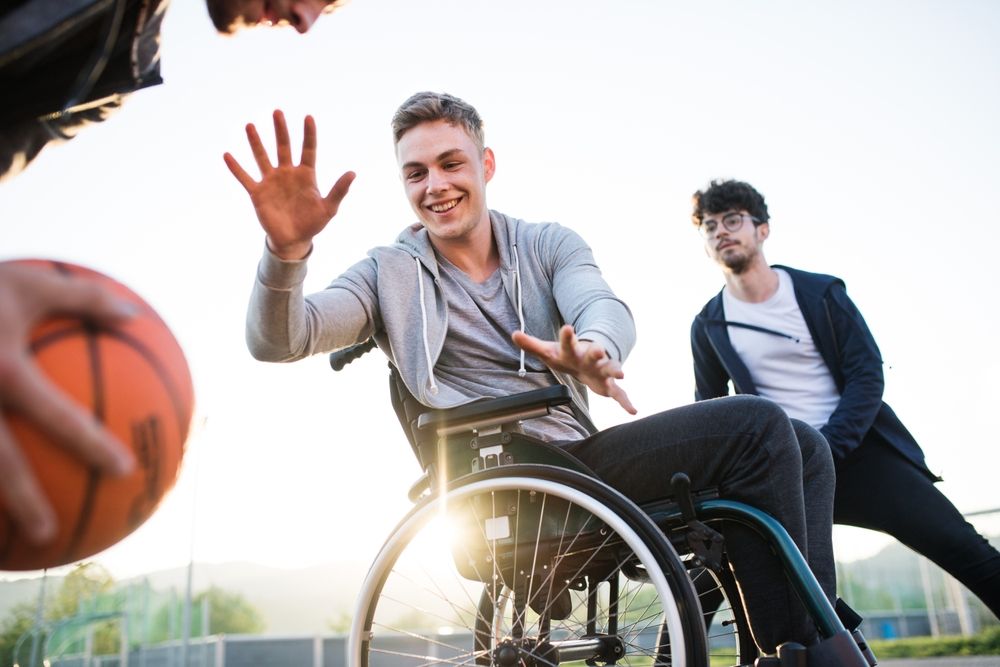For children with physical challenges, sports and recreational activities are more than just a way to stay active—they’re opportunities for personal growth, social interaction, and self-confidence building. Adaptive sports and activities are specially designed to accommodate diverse physical abilities, allowing children with disabilities or physical limitations to participate fully, learn new skills, and enjoy the benefits of play.
Benefits of Adaptive Sports for Children
Participation in sports and activities can positively impact a child’s life in multiple ways, including:
- Physical Health: Adaptive sports promote strength, flexibility, balance, and cardiovascular health, reducing the risk of secondary health issues.
- Mental and Emotional Well-being: Physical activity stimulates the release of endorphins, which improve mood and reduce stress. Additionally, overcoming physical challenges can boost a child’s self-esteem and resilience.
- Social Connections: Adaptive sports foster teamwork, helping children make new friends and build connections. Shared experiences on the field, court, or track help children feel a sense of belonging.
- Skill Development: Sports encourage children to develop important skills, including goal-setting, coordination, and perseverance, which benefit them in all areas of life.
Types of Adaptive Sports and Activities
Many traditional sports have adaptive versions designed to be inclusive for children with physical challenges. Here are some popular options that offer physical, social, and emotional benefits:
1. Wheelchair Basketball
Wheelchair basketball is a popular adaptive sport with its own leagues and competitions around the world. The game is similar to traditional basketball, with modified rules that accommodate wheelchair use. Children with lower-body mobility challenges can develop upper-body strength, coordination, and endurance through wheelchair basketball.
Benefits:
- Builds upper body strength, especially in the arms and shoulders.
- Encourages teamwork and coordination.
- Provides an excellent cardio workout, improving cardiovascular health.
2. Adaptive Swimming
Swimming is a low-impact sport that’s accessible to children with various physical challenges. In adaptive swimming, modifications are made to swimming techniques or equipment to support children with disabilities, such as floatation devices for those who need extra support. Swimming is especially beneficial for children with limited mobility, as the water reduces pressure on joints and provides gentle resistance.
Benefits:
- Improves muscle strength and flexibility.
- Promotes relaxation and stress relief.
- Enhances respiratory function and cardiovascular health.
3. Track and Field
Adaptive track and field events allow children to participate in various races, including sprints, long-distance runs, and relay races. Track and field can be modified to accommodate physical challenges; for instance, children with lower limb disabilities can use racing wheelchairs or prosthetic limbs.
Benefits:
- Builds stamina, endurance, and cardiovascular health.
- Helps children set and achieve personal goals.
- Increases confidence and determination.
4. Sled Hockey
Sled hockey, also known as sledge hockey, is an adaptive form of ice hockey for children with lower body disabilities. Players sit on sleds with skate blades and use two sticks for propulsion and shooting. This high-energy sport is accessible to children with varying degrees of mobility challenges and is widely played in community leagues.
Benefits:
- Develops arm and upper body strength.
- Encourages coordination and quick reflexes.
- Boosts confidence and teamwork.
5. Equestrian Therapy (Therapeutic Riding)
Therapeutic horseback riding, also known as equestrian therapy, allows children to experience horseback riding under the guidance of trained therapists. The rhythmic movement of the horse stimulates muscle development, balance, and motor skills. Therapeutic riding programs are available for children with various physical challenges and can be adapted based on each child’s abilities.
Benefits:
- Enhances balance, core strength, and motor skills.
- Reduces muscle stiffness and increases mobility.
- Promotes relaxation and improves mood.
6. Adaptive Dance
Adaptive dance programs are designed to include children of all physical abilities. Children participate in various forms of dance, including ballet, hip-hop, or jazz, with modifications made to accommodate mobility needs. Dance is a creative outlet that allows children to express themselves, connect with others, and enjoy rhythmic movement.
Benefits:
- Improves coordination, flexibility, and range of motion.
- Boosts confidence and encourages self-expression.
- Provides an opportunity for social interaction and creativity.
7. Boccia
Boccia is a precision ball sport similar to bocce and is popular among children with physical disabilities. The game involves throwing leather balls as close as possible to a target ball, requiring concentration, strategy, and skill. Boccia is especially suited to children with more limited mobility and can be played in various environments.
Benefits:
- Enhances hand-eye coordination and fine motor skills.
- Builds focus, patience, and strategic thinking.
- Promotes social interaction and friendly competition.
8. Goalball
Goalball is an adaptive sport designed for children with visual impairments. In this team sport, players try to throw a ball with bells embedded in it into the opposing team’s goal. The players wear eye covers to ensure an even playing field and rely on listening and tactile senses to play.
Benefits:
- Improves listening skills and spatial awareness.
- Builds teamwork and collaboration.
- Increases physical endurance and reflexes.
9. Rock Climbing
Adaptive rock climbing offers modified climbing experiences for children with physical challenges, including those with limited mobility. Adaptive equipment such as harnesses, pulleys, and accessible climbing walls allow children to participate safely. Many rock climbing facilities offer classes with specially trained staff to support children’s unique needs.
Benefits:
- Enhances upper body strength and coordination.
- Develops problem-solving skills and confidence.
- Promotes resilience and determination.
10. Adaptive Yoga
Yoga is an inclusive practice that can be easily modified to meet children’s needs. Adaptive yoga programs incorporate poses, breathing techniques, and relaxation exercises designed to accommodate various physical abilities. This calming, non-competitive activity can be done individually or in group settings.
Benefits:
- Increases flexibility, balance, and muscle tone.
- Reduces stress and improves focus.
- Fosters body awareness and mindfulness.
Adaptive sports and activities open a world of opportunities for children with physical challenges, allowing them to experience the joy of movement, connection, and achievement. From wheelchair basketball and adaptive swimming to equestrian therapy and yoga, there are countless ways for children to get involved, build skills, and gain confidence. By encouraging your child to explore adaptive sports and celebrating their progress, you’re supporting their development, happiness, and quality of life.
If you’re interested in learning more, reach out to local adaptive sports organizations or talk to your child’s healthcare provider about how to get started. With the right support and resources, adaptive sports can become a meaningful and transformative experience for your child and your family.




